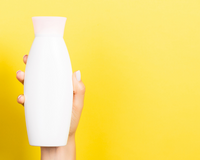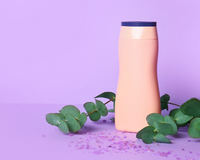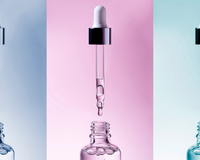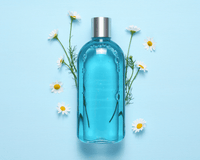Black hair care products, women with naturally kinky-curly hair understand how tough it is to keep their hair appearing long and healthy. They've compiled a list of hair professionals' best tips and tricks for long black hair. One of the most essential techniques for growing long black hair is to nurture the hair follicles from inside. If the hair follicles aren't fed and healthy, no amount of cream rinses, masks, or preventive hairstyles can assist stimulate black hair development. Use a hair growth supplement with a combination of vitamins, minerals, and other nutrients that have been clinically proved to work. Biotin (Vitamin B7), Vitamin C, and Niacin are some of the greatest hair vitamins for black hair development and other hair types (Vitamin B3).
Black Hair Care Products
Iron and zinc are two of the greatest elements for good hair development. Take a hair development supplement that includes marine extracts, millet seed extract. Hence, horsetail (stem) extract, as well as other elements important for healthy hair growth. Only after you've properly fed your hair follicles from the inside can you consider using topical black hair growth products and hairstyles to aid in the growth of natural black hair. For developing black hair, also a mild wash and moisturizing conditioner are recommended.
Women often believe that the key to black hair development is to shampoo less frequently, yet a clean, conditioned scalp free of oil and debris is essential for black women's healthy hair growth. To keep hair moisturized and nourished, and to condition, the scalp and hair, use a thick, rich moisturizing conditioner that contains argan oil and hazelnut oil on a regular basis, especially after shampooing. You may have heard of protective hairstyles for black hair development. However, many experts now believe that low-manipulation styles are the secret to black hair growth.
Protective hairstyles, which tuck or otherwise preserve the ends of natural hair so they may be left undisturbed for months. They are based on the notion that less handling leads to less hair breakage and damage, allowing for more hair development. Months of not touching hair can lead to drier hair and tangles, and protective styles like tightly braided and twisted hairstyles generally cause more breakage than traditional, non-protective styles.
How To Apply Black Hair Care Products?
Getting regular haircuts is another black hair growth tip. Getting regular trims for natural black hair and all hair types eliminates split ends and prevent breakage, allowing black hair to grow longer and healthier. For their naturally curly hair, many ladies opt for a "deva cut," which is a method in which dry natural hair is molded and cut piece by piece rather than straight across. Natural hair growth patterns and the natural form of naturally kinky or curly black hair are preserved with Deva cuts.
Oil is a well-known cure for thicker, longer hair. So it's only logical that her collection includes a product with the component prominently displayed. Massage it into your scalp and watch the magic happen. Curls' creator envisions a world where women with textured hair may find items designed just for them on every store shelf. This strengthening mix of vitamins, folate, selenium, biotin, and plant extracts, on the other hand, will benefit everyone.
Your curls, like you, become thirsty during the day. This spray, designed by a 20-year salon veteran, is like a tall drink of water for dry coils. Spritz on second-day hair to bring it back to life with a blend of plant ingredients.
Benefits Of Using Black Hair Care Products
Tea tree oil unclogs follicles for stronger hair, shea butter moisturizes, and aloe vera juice conditions hair and soothes the scalp. According to trichologist and hairstylist Dr. Kari Williams. This recipe is so natural, it might create by hand in someone's kitchen, as the brand's name suggests. The brand's founder couldn't find plant-based products that worked for her thick hair, so she made them herself. This conditioner is a highlight of the brand, which is recognized for its honey-based products. Do you want to add some moisture to your life? Repair damage, enhance manageability and lock in hydration with this black honey and coconut oil-rich hair mask.
A potent mix of antimicrobial and softening essential oils helps rich oils like olive and castor to nurture curls to their full potential.
You may have seen the brand's husband-and-wife founders, but it's their products that are truly addictive. This brush detangles hair as smoothly as a knife through warm butter, with less discomfort and shedding. The bulk of the natural oils and scents used in the products are derived from Africa. So the formulations were inspired by the trichologist's experience with chemical straightener breakage and scalp damage. This sulfate-free solution eliminates buildup rather than natural moisture.
Black Hair Care Routine
The first step in taking care of your afro hair is to establish a basic regimen that fits into your schedule. If you stick to a regular schedule, you'll be able to figure out what works and what doesn't. It's difficult to determine what has to be corrected if anything goes wrong or if you test a new product if you don't have a routine. For many people, the idea of developing a hair care routine is daunting. The internet is full of hair experts that advise you to wash your hair every week for a whole day and spend the rest of the week styling it. Go ahead and do that if that's what you want to do, but it's not necessary! In actuality, having a basic regimen that fits with your daily life is considerably easier.
If your hair is healthy and developing, the regimen works for you. You'll be more likely to stick to it and experience benefits. It's critical to maintain a clean and healthy scalp. You should cleanse your scalp on a daily basis, just as you should wash and moisturize your face. Hair development begins in the follicle, and new hairs emerge from the scalp's small pores. When the pores clog, it's difficult for new hair to grow in, resulting in painful lumps and ingrown hairs. It's critical to keep your scalp clean since it can encourage fungal infections, dandruff, stunted hair development, and other issues.
Experts recommend cleaning your scalp with a mild sulfate-free shampoo every 7-10 days.









